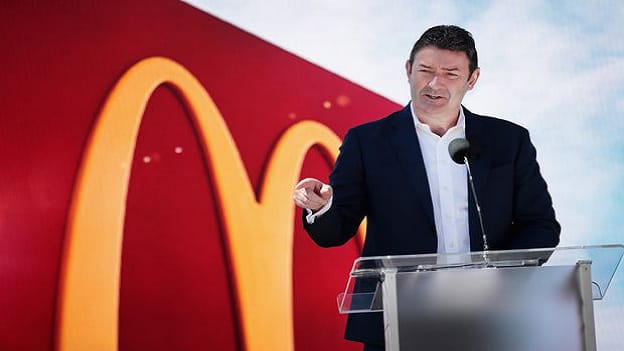McDonald's sues former CEO Stephen Easterbrook

McDonald's Corp has filed a lawsuit against former chief executive officer Stephen Easterbrook to recover his exit package after an internal investigation showed that he had sexual relationships with multiple employees, violating company policy, the fast-food chain said in a filing on Monday.
Easterbrook "concealed evidence and lied about his wrongdoing" and had physical sexual relationships with three McDonald's employees in the year before his termination, the filing said.
McDonald's had dismissed Easterbrook in November over a non-physical, consensual relationship with an employee, which the board then determined violated company policy.
In November, the company said Easterbrook was eligible for six months of severance pay, which would have been $675,000, based on his 2018 base salary of $1.35 MN. He was also eligible for prorated payment for hitting 2019 performance targets.
The fast food giant prohibits "any kind of intimate relationship between employees in a direct or indirect reporting relationship".
At the time of Easterbrook's removal in November, McDonald's said it had evidence of only of a non-physical, consensual relationship, consisting of intimate text messages and video calls.
It agreed to terminate Easterbrook's contact "without cause", fearing a protracted legal battle, according to the firm's legal filing.
But after receiving a tip from an employee in July, the fast food giant started a second investigation, which uncovered "undisputable evidence" of three other sexual relationships.
It is reported that investigators found messages showing that Easterbrook approved a grant of company shares worth hundreds of thousands of dollars to one of the employees "shortly after their first sexual encounter".
"Easterbrook's silence and lies - a clear breach of the duty of candor - were calculated to induce the Company to separate him on terms much more favorable to him than those the Company would have offered and agreed to had it known the full truth of his behavior," McDonald's said in the filing.

















